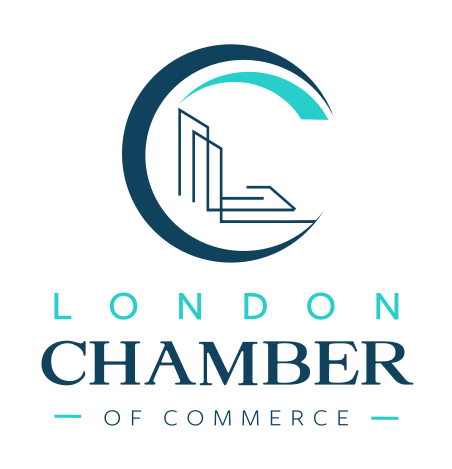We are a politically independent, membership based, volunteer driven, not-for-profit organization whose mission is to lead and serve the London business community. We work hard on behalf of members, offering insightful and meaningful policy contributions, leading initiatives that positively influence London's social and economic landscape.
Vision
We are a trusted and essential ally for business, contributing to the London region’s diverse economic strength and social progress.
Mission
To lead and serve the London region business community, celebrating and supporting business diversity and excellence, advocating for positive outcomes, and helping members make meaningful connections.
Strategic Plan
We are pleased to announce our new strategic plan. The plan is the product of months of consultation with members, partners, and stakeholders. It represents a seismic shift in our mission, vision and values, and we are excited to be able to share it with you.
Every effort was made to ensure that the principles of equity, diversity, and inclusion were infused into the plan, and even our structure. And we expect to be assessed and evaluated on our ability to live up to these principles.
Annual Report
History of our Chamber
The Chamber's origins stem from protecting London's business interests and making the city a better place to live and work.
From the outset, the London Chamber has been actively engaged in debate and legislation that affects local business and community planning.
Areas of concern have included: law reform, fair taxation, labour markets and wages, consumer protection, and the municipal, provincial, and federal budgets.
It was in 1857 that 44 of London's prominent business, civic and political leaders gathered at the old Mechanic's institute to establish the London Board of Trade (LBOT).
Notable London businessmen included John Kinder Labatt, Lionel Ridout, and Sir John Carling. With a membership fee of one pound, the LBOT set a mandate to avoid government funding and rely on financial and moral support from its members.
Acknowledgement of our spirits and the land
The London Chamber of Commerce recognizes that the area in which we gather, work, and live is located within the traditional territory of the Anishinaabeg, Lenaapewuk, Haudenosaunee, and Chonnonton Nations; land that is also shared by Metis, Inuit, and urban Indigenous community members. The City of London is party to the London Township Treaty of 1796 and the Longwoods Treaty of 1819. We thank the Indigenous peoples’ commitment and relationship with the land and waters, for knowing that our ongoing survival is connected to the land.
I’d like to acknowledge the communities in circle. The East, South, West, and Northern directions. We acknowledge the local First Nations communities in this area, Chippewas of the Thames First Nation, Oneida Nation of the Thames, and Munsee Delaware Nation. This region is now home to many First Nation, Inuit, and Métis communities.
This area is the subject of the Dish with One Spoon Wampum Belt Covenant, an agreement to establish peaceful cooperation between communities. We share the responsibility with the land's stewards for ensuring that the dish is never empty and for re-establishing relationships based on peace, trust, and friendship.
Commitments to Reconciliation
The London Chamber of Commerce is committed to the process of truth and reconciliation. As we begin our journey towards reconciliation, it is essential to understand what that means and how it looks. Reconciliation is more than admitting mistakes and listening alone is insufficient. It requires action, and that action can take many forms, including individually and professionally.
We acknowledge the historical and ongoing injustices faced by Indigenous Peoples in Canada, and we feel responsible to expose and correct misinformation while also renewing respectful relationships with Indigenous communities through amplifying and uplifting Indigenous voices, stories, knowledge, and community service
Reconciliation requires having a good relationship, to begin with, and then striving to reconcile it. For many Indigenous peoples, there has never been a healthy relationship. While inequalities, injustices, and power imbalances still exist, we must consider this.
Through this understanding, we can begin the rebuilding of friendly relations.
But most importantly, it requires love, respect, and compassion.
Now is the time to question existing beliefs and invest in strong relationships.
Shared Waters: London Listens
The London Chamber of Commerce, in partnership with photographer Richard Bain and creative designer Katie Wilhelm, has produced a book of photography called Shared Waters: London Listens. It brings into focus Indigenous businesses, entrepreneurs, and spaces around London.
The London Chamber of Commerce has undertaken an Indigenous Community Engagement under the guidance of Dr. Nicole Kaniki and Tia Kennedy. A direct action that flowed from this engagement was our decision to focus our book in the manner that we have.
The Creative Designer of this Project is Katie Wilhelm from the Chippewas of Nawash First Nation. Her Design Rationale is attached for your review as well as her design for the front and back cover of our book, which we call: Shared Waters: London Listens.
As Katie so beautifully puts it, our book:
“Is a call to Londoners to reconcile with our current and future relationship to the local river and how our actions are affecting our surrounding First Nations communities. There is a direct cause and effect that Londoners are listening to - and sharing responsibility for.”
Shared Waters is a partial fulfillment of the Chamber’s moral obligations in response to the Truth and Reconciliation Commission’s Calls to Action. All net proceeds from the publication of this book will be devoted to furthering these obligations.

